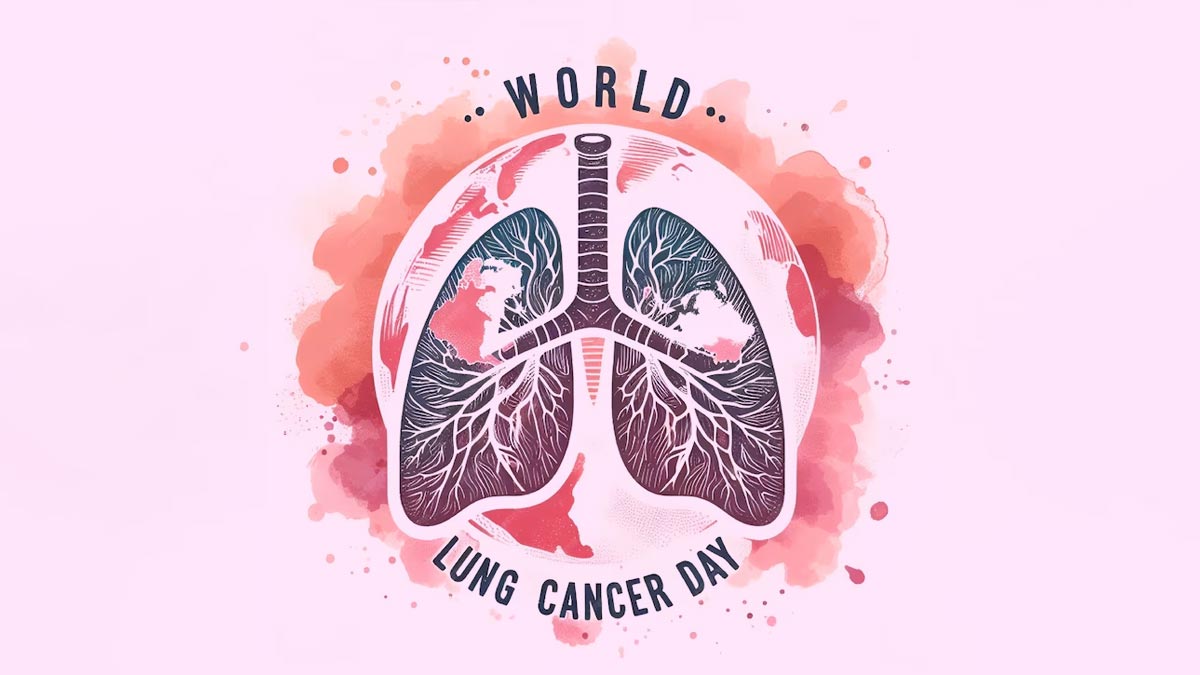
World Lung Cancer Day is a poignant reminder of the challenges faced by millions battling this relentless disease. For many, the journey through lung cancer is fraught with physical pain, emotional turmoil, and psychological stress. While doctors work hard to treat the cancer, palliative care steps in to make life a bit easier for patients and their families. It focuses on comfort and support, not just curing the illness. We spoke with Dr Viswesvaran Balasubramanian, Consultant - Interventional Pulmonology and Sleep Medicine, Yashoda Hospitals, Hyderabad to understand how palliative care helps people holistically cope with lung cancer.
Table of Content:-

Palliative care is a critical component of comprehensive lung cancer treatment, addressing the physical, emotional, and psychological needs of patients to enhance their quality of life. According to a 2013 study, palliative care starts at the diagnosis of a serious illness, continues through treatment and cure or until death, and supports the family during the bereavement period.
“Unlike curative treatments that focus on eradicating cancer, palliative care aims to alleviate symptoms, manage side effects, and support patients and their families throughout the cancer journey,” highlighted Dr Balasubramanian.
Symptom Management

“One of the primary roles of palliative care in lung cancer treatment is symptom management. Lung cancer and its treatments often lead to debilitating symptoms, such as pain, shortness of breath, cough, fatigue, and nausea,” said Dr Balasubramanian.
Palliative care specialists work to relieve these symptoms through a variety of interventions. For example, they may prescribe medications to manage pain and nausea, offer strategies to improve breathing or provide interventions like thoracentesis to remove fluid from the lungs and alleviate pressure.
Psychological and Emotional Support

In addition to symptom management, palliative care addresses the psychological and emotional aspects of living with lung cancer. The diagnosis and treatment of lung cancer can lead to significant stress, anxiety, and depression.
Dr Balasubramanian added, “Palliative care teams include mental health professionals who provide counselling and support, helping patients and their families cope with the emotional impact of the disease. This support is crucial for maintaining mental well-being and improving overall quality of life.”
Facilitating Communication
Palliative care also plays a key role in facilitating communication between patients, families, and healthcare providers. Lung cancer treatment often involves complex decisions regarding the use of aggressive therapies versus comfort-focused care.
“Palliative care specialists help patients and families navigate these decisions by discussing goals of care, treatment preferences, and advance directives. This ensures that care aligns with the patient’s values and wishes, providing a sense of control and clarity during a challenging time,” said Dr Balasubramanian.
Also Read: World Lung Cancer Day: Expert Lists Types And Stages Of This Cancer
Support for Families and Caregivers

Furthermore, palliative care supports families and caregivers by offering guidance, respite care, and emotional support. Caring for a loved one with lung cancer can be overwhelming, and palliative care teams can provide resources and assistance to ease the burden on caregivers.
This support helps families manage the practical aspects of care, such as coordinating services and understanding medical information, as well as offering emotional support to deal with the stress of caregiving.
Bottomline
Dr Balasubramanian concluded, “Palliative care is an integral part of lung cancer treatment, enhancing the quality of life through comprehensive symptom management, emotional and psychological support, and effective communication. By focusing on the holistic needs of patients and their families, palliative care ensures that individuals with lung cancer receive compassionate and personalised care throughout their illness.”
[Disclaimer: This article contains information provided by an expert and is for informational purposes only. Hence, we advise you to consult your own professional if you are dealing with any health issues to avoid complications.]
Also watch this video
How we keep this article up to date:
We work with experts and keep a close eye on the latest in health and wellness. Whenever there is a new research or helpful information, we update our articles with accurate and useful advice.
Current Version
